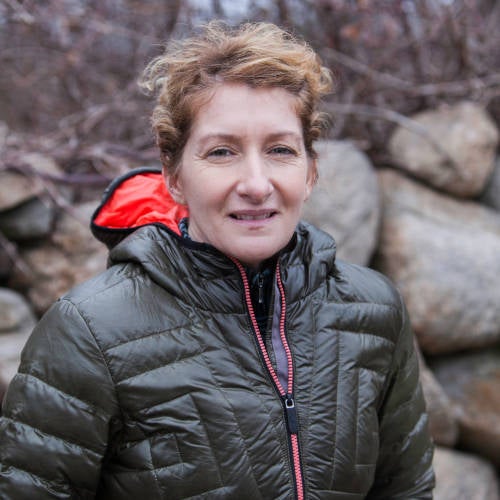Online webinars hosted by Phyllis Penhallow run each Wednesday evening
The University of Rhode Island’s Department of Human Development and Family Science is offering open remote support seminars via Webex for local parents with children between the ages of birth through five.
The seminars aim to address the many issues that arise for parents who now have to stay home with their children every day due to the COVID-19 pandemic, and give advice on how to handle the situation and not get overwhelmed during this especially stressful time.
The seminars are being held every Wednesday 8-9 p.m. throughout the month of April, and are hosted by Senior Lecturer and Academic Advisor Phyllis Penhallow. The topics that have been covered so far include how to create a daily routine, parent/child stress and anxiety, and talking to children about the crisis.
“It’s good for parents to connect, it’s good for them to feel like they’re not alone,” Penhallow said. “It’s good for them because the issues they’re having at home other people are having too.”
Many other people have been involved in giving advice to parents, as well. Penhallow has brought in a URI Ph.D. student with a specialty in anxiety and working with parents, and a few senior HDF majors have been involved, as well.
Penhallow explained that she has opened up the opportunity to HDF seniors as an alternate way to help them earn the internship credit they need to graduate. After they participate in a seminar, they are also asked to complete a reflection assignment. The students’ feedback on the seminars has been mostly positive so far.
“The things they said in their reflections were that it was so interesting for them to hear parent concerns,” Penhallow said. “They have so much college experience and academic skill working with children, but they were surprised at some of the questions parents asked and how simple the solutions were.”
In previous seminars, according to Penhallow, parents said they were having a harder time than usual getting their kids to listen to them. The facilitators’ simple solution to this is called “grandma’s rule,” in which a parent tells a child that if they do the things they need to do first, they will get to do that they want. Penhallow used the example of wanting your child to brush your teeth when they want to read a book instead.
“Even if you could only get the toothbrush in the hand and on one tooth, that’s OK because your message is clear,” she said. “And of course, this is in the context of a loving, responsive parent-child relationship.”
The facilitators have also addressed how to go about talking about the COVID-19 crisis with children. If children bring it up, Penhallow said parents should first have them look at the bright side by telling them how many people are trying to help and the resources they have. “You’ve got police, you’ve got doctors, you’ve got nurses, you’ve got neighbors, you’ve got church, you’ve got businesses,” Penhallow said. “So really break it down for children, and then let them see ‘Wow all of these people are helping.’ And that’s very comforting for young children.”
The next thing parents should do is to ask the child what they heard about the crisis and where they heard it from, and then respond by simply answering their questions and clarifying any misinformation they may have without adding too much more to it.
“As adults, we tend to give children too much information and we end up scaring them and overwhelming them when they’re actually just looking for very clear, concrete answers,” Penhallow explained.
Other parents wanted to know how to create a daily household schedule. Penhallow advised against strictly limiting activities to the time on the clock, such as waking up at 8 a.m., doing a specific chore at 9 a.m., and moving on to something else right at 10.
“We say that with young children, birth through five, following a routine is better,” Penhallow said. A routine is simply doing tasks and finishing them in a certain order rather than focusing on time, she explained.
In terms of what to include in the routine, the facilitators suggested six activities per day that fall into each of these categories: mind (learning or reading), heart (cooperation, serving, something inspirational, etc.), body (exercising, stretching, dancing), creativity (arts, crafts or music), home (children help cook, clean, organize) and free play. These activities can be in any order the parent thinks would be best.
Parent stress was also a hot topic in recent seminars. “Parents that we could see on the video looked very tired,” Penhallow said. “And what we sensed was a delayed acceptance. Parents were wondering if this was going to happen, if they were goin g to be stuck at home, and then it happened. So it’s almost like the reality of it all.”
Penhallow has one more piece of advice: “We reminded the parents about enjoying their children at this time and trying not to think about all the things a parent has to do. You just want to incorporate the children the best you can.”
To join a future parent support seminar, email pcpen@uri.edu and the Webex invite will be sent to you. No RSVP necessary. The Department of Human Development and Family Science is part of the College of Health Sciences.

